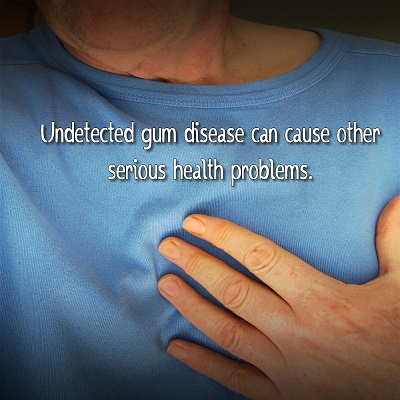 Dental health is an issue that is often ignored by many people. Unless extreme pain is experienced and a visit becomes essential, a consult with a dentist may never occur.
Dental health is an issue that is often ignored by many people. Unless extreme pain is experienced and a visit becomes essential, a consult with a dentist may never occur.
Perhaps one reason is that dental procedures can be expensive, and the cost overrides the need to have a checkup. Another reason is that some people fear a visit to the dentist!
However, you can be unaware of any potential problems because there may be little or no pain during the early stages. If you don’t go to the dentist for a regular check-up and professional cleaning, you run the risk of developing gum disease.
If not detected early, it may lead to an increased risk of other health issues. Therefore, it’s necessary to know the signs before it becomes severe.
How Do You Know You Have Gum Disease?
The early signs of gum disease or the gingivitis stage are:
- Bleeding gums – It happens when you are brushing and flossing. Your gums bleed easily, even from a touch.
- Change in the color of your gums – pink gums are healthy gums. The first signs your gums are in trouble are when they become red, swollen, and tender. It usually begins with inflammation at the gum’s base.
If gingivitis is not taken care of, gum infection can go beyond your gum line and through the bones and tissues that support your teeth. This can cause severe gum disease called periodontitis or periodontal disease.
The signs of severe gum disease or periodontal disease are:
- Bad breath – When your breath has an unpleasant smell despite doing your oral hygiene. It’s a sign you have plaque and tartar that cause bacteria to increase in your mouth. The more plaque you have, the more bacteria that will feed on them. These bacteria discharge toxins that irritate the gums and cause a foul smell.
- Dental abscess – This is a pus sac between the gums and teeth caused by a bacterial infection. The bacteria accumulate under your gums and bone of teeth if the food you eat is always trapped, and you ignore good oral hygiene.
- Teeth move or become loose – Periodontitis damages the bones holding your teeth, so they can loosen or move and make biting and eating difficult.
- Receding gums – This is a condition where your gums pull away from your teeth and expose the roots of your teeth. Your teeth will look longer because your gums get smaller and create a pocket.
- Your teeth become sensitive – It is a sign of gum disease related to receding gums. Because the dentin, which is the sensitive part of your teeth is exposed, it causes sensitivity when you drink or eat something cold.
- Unpleasant taste in your mouth – A lingering unpleasant taste such as bitter, foul, or metallic may be because of abscesses, infection, or inflammation.
Gum Disease Linked to Other Health Problems
According to studies, gingivitis and periodontitis may affect other parts of your body like the brain, heart, and lungs. Researchers have discovered these important facts:
- Periodontitis speeds up the accumulation of Beta-amyloid, a microscopic brain protein fragment, which causes Alzheimer’s. The bacteria in persons with periodontitis can also be found in persons with Alzheimer’s.
- The bacteria in your gums might enter the bloodstream and be driven to other organs like the heart and can result in heart inflammation and damage. The bacteria found in gingivitis cases, P.gingivalis, is also the most common bacteria thriving in the heart’s coronary artery.
- An enzyme called Treponema denticola, created by a kind of bacteria in gum disease is present in some gastrointestinal tumors and can cause pancreatic cancer.
Gum disease is a problem you should not overlook. Although it has health risks, it is curable and preventable if diagnosed and treated early. See your dentist if you have the signs. Above all, maintain good oral hygiene and have a regular dental check-up to avoid gum disease and related serious health threats.






